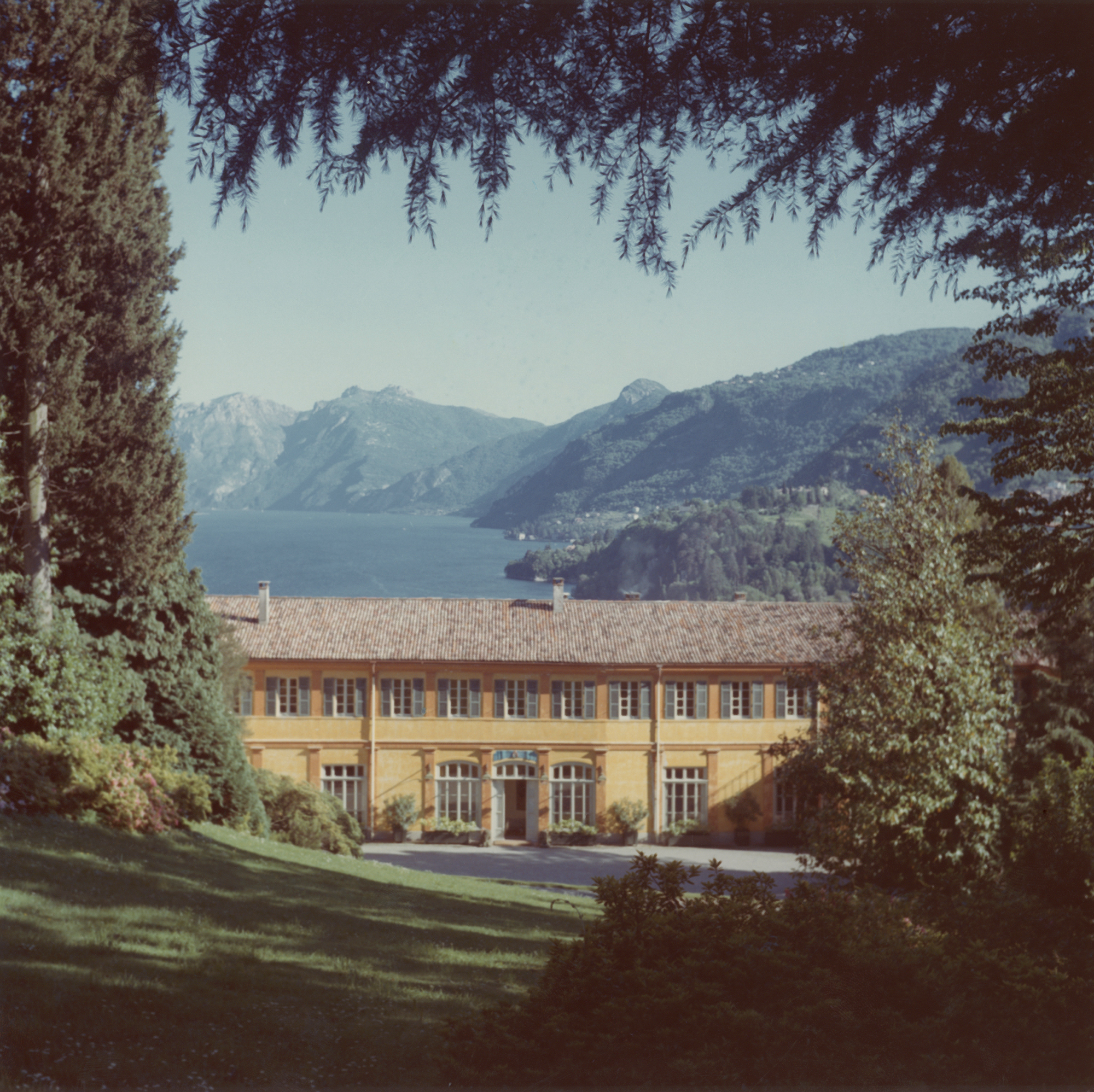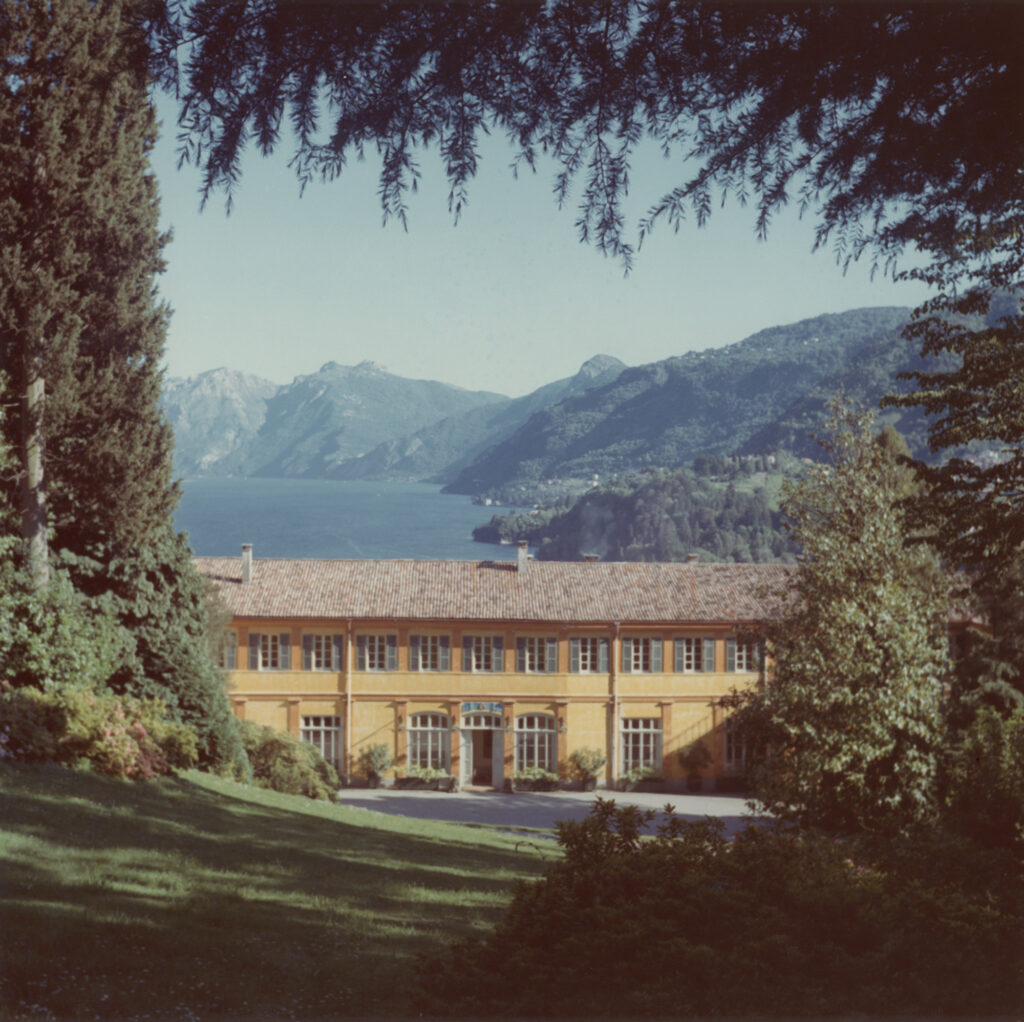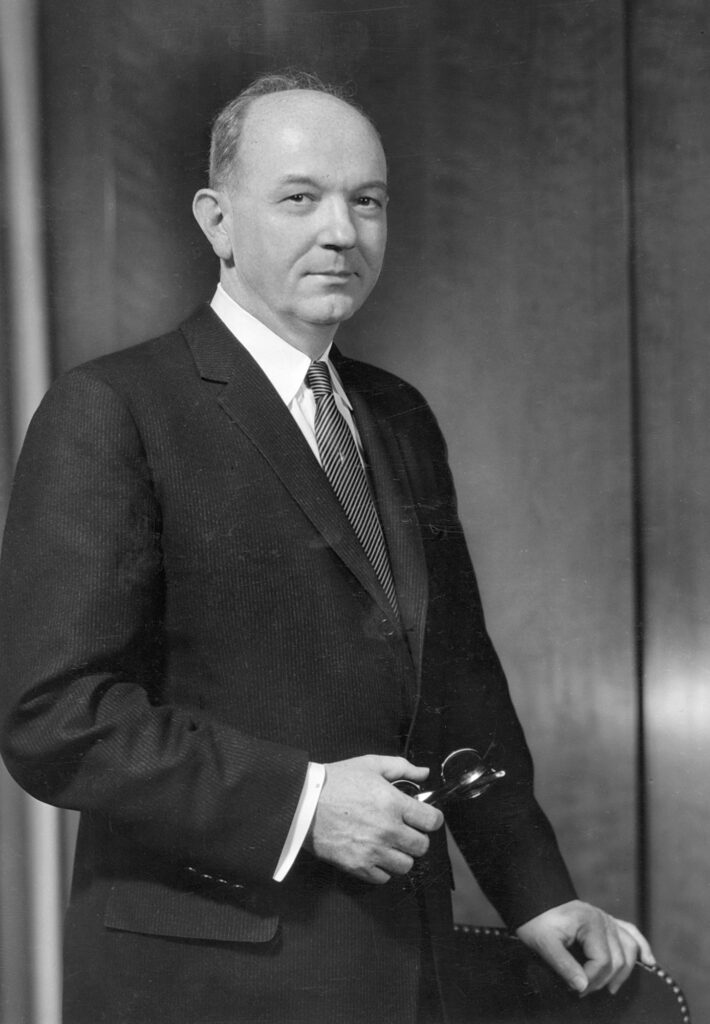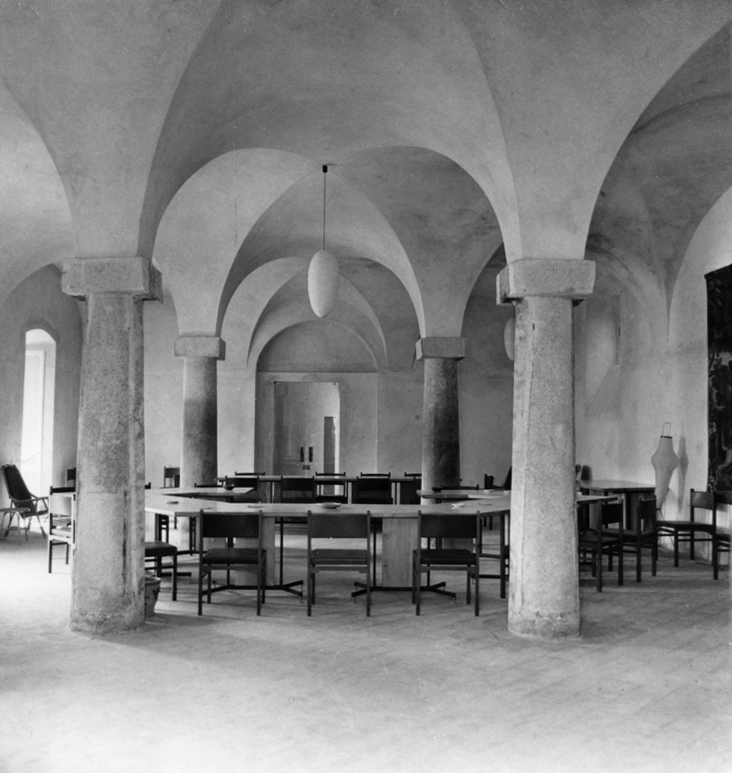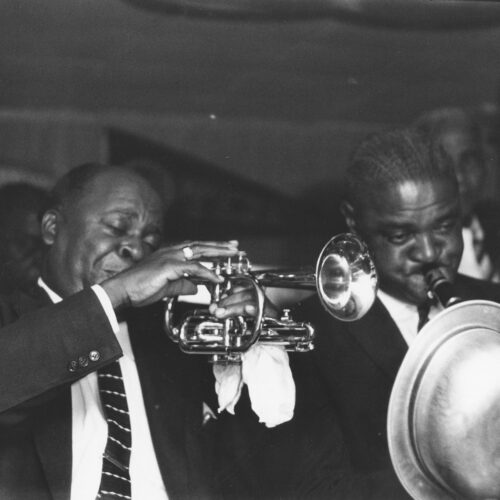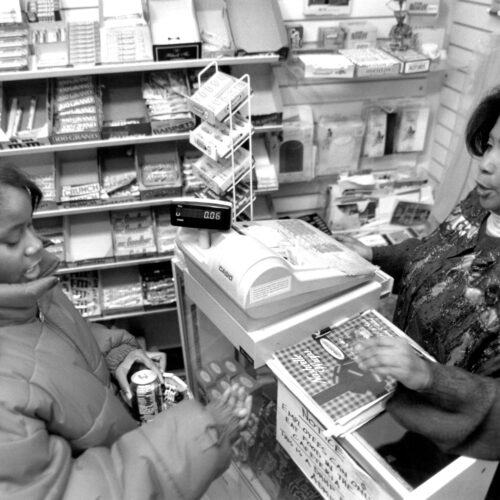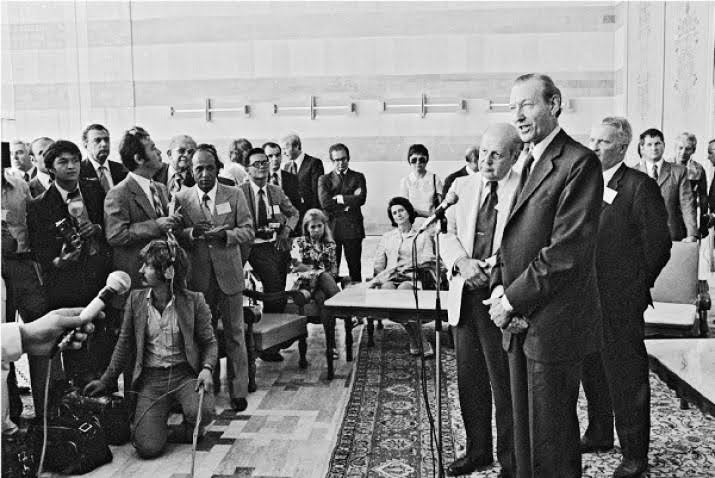The Princess Della Torre e Tasso, born Ella Walker in Detroit in 1875, acquired the Villa Serbelloni on the shores of Lake Como in Bellagio, Italy, in 1930. The granddaughter and heiress of the distiller Hiram Walker, she lived most of her adult life in Europe.
In 1958, worried about the ultimate disposition of the Bellagio property as her health declined, she asked the American ambassador to Italy, James D. Zellerbach, to make inquiries about donating the estate to an American foundation or university, including the Carnegie Endowment, Ford Foundation, and Rockefeller Foundation.
An Opportunity to return to Europe
Dean Rusk, president of the Rockefeller Foundation, was the only one to express serious interest in accepting the Villa, its 50-acre park, and the outlying buildings, which included a small church and cloister. World War II had forced the Foundation to abandon its Paris office and to suspend its European programs. With the prospect of acquiring a meeting place in Italy, Rusk saw an opportunity for the Foundation to return to Europe.
Yet such a parcel would also incur enormous ongoing costs. Cautious about accepting the property, he wanted the donor to provide funds to endow its maintenance and programs. After conversations with the American ambassador, the Princess agreed to add a simple codicil to her will, bequeathing the property and $2 million to the Rockefeller Foundation “for the promotion of international understanding.”
The Foundation assumed responsibility for the estate in 1959 and began to consider how it would be used. John Marshall, a long-time member of the Humanities Division, was named director of the Villa Serbelloni and took charge of the planning. A succession of invited visitors offered their ideas for conferences and residencies and the new program took shape quickly. But the most considerable early challenge lay in persuading the Italian government that the Bellagio Center should have a legal status equivalent to nonprofit status in the US. After the US Department of State made entreaties to Italy’s Ministry of Foreign Affairs, these difficulties were soon resolved.
A Center for Scholarship and Political Thought
By 1960-61, more than a dozen scholars and artists had spent time at Bellagio. The Foundation had also organized its own planning conferences, the first focused on Tibetan Studies and the rescue of Tibetan scholars threatened in the aftermath of China’s annexation of Tibet. It also made the Villa available to select groups such as the International Association of Universities, the Educational Testing Service, and the Carnegie Endowment for International Peace.
The idea for the Center was aspirational. As early as 1961, RF program officer Gerald Freund explained,
Only Serbelloni is connected with an institution whose officers are deeply concerned with the advance of disciplines and with the issues of advancing knowledge and understanding everywhere in the world.Memo from Gerald Freund to Kenneth W. Thompson, October 16, 1961, Record Group 3.2, Series 900, Box 88, folder 484.
In the more than sixty years since its inception, thousands of artists, writers, scholars, and policymakers have held individual residencies at Bellagio. The Center has provided a creative and reflective space for Pulitzer Prize winners and Nobel Laureates. Tens of thousands of others have attended group conferences, which have been designed to move fields and ideas forward and spark innovation and change. These conferences have addressed global challenges of every sort, from questions of international trade and finance to global public health, agriculture and food security, and population growth.
A Center for Innovation and International Cooperation
Conferences at Bellagio have often laid the groundwork for Rockefeller Foundation initiatives, sometimes setting in motion more broadly collaborative work.
An important series of conferences that began in the late 1960s led to the creation of the Consultative Group on International Agricultural Research (CGIAR), enabling the agricultural research institutes founded by the Rockefeller and Ford Foundations to operate under the auspices of the World Bank beginning in 1971.
In the 1990s, conferees met to discuss the global HIV/AIDS pandemic and ponder possibilities for developing a vaccine. While that particular vaccine was never realized, following from this convening, a broader vaccine initiative was soon launched, and in 1999 the Global Alliance for Vaccines and Immunization (GAVI) was organized. Global educational issues have been the subject of countless Bellagio meetings since the 1960s. In 1992, one noteworthy outcome was the creation of the Forum for African Women Educationalists (FAWE).
The Rockefeller Foundation’s Bellagio Center continues to serve as a venue for meetings organized by UN agencies, international NGOs, national development agencies such as the US Agency for International Development (USAID) or the UK Department for International Development, as well as universities from around the world.
Research This Topic in the Archives
Explore this topic by viewing records, many of which are digitized, through our online archival discovery system.
- “Villa Serbelloni,” 1959-1961. Rockefeller Foundation Records, Administration, Program and Policy, Record Group 3, Subgroup 3.2, Series 900, Rockefeller Archive Center.
- “Villa Serbelloni,” 1962-1967, 1970, 1977. Rockefeller Foundation Records, Administration, Program and Policy, Record Group 3, Subgroup 3.2, Series 900, Rockefeller Archive Center.
- “Villa Serbelloni – Administration,” 1959. Rockefeller Foundation Records, Administration, Program and Policy, Record Group 3, Subgroup 3.2, Series 900, Rockefeller Archive Center.
- “Villa Serbelloni – Administration,” 1960-1961 June. Rockefeller Foundation Records, Administration, Program and Policy, Record Group 3, Subgroup 3.2, Series 900, Rockefeller Archive Center.
- “Villa Serbelloni – Administration,” 1968-1970. Rockefeller Foundation Records, Administration, Program and Policy, Record Group 3, Subgroup 3.2, Series 900, Rockefeller Archive Center.
- “Villa Serbelloni – Program and Policy,” 1961-1970. Rockefeller Foundation Records, Administration, Program and Policy, Record Group 3, Subgroup 3.2, Series 900, Rockefeller Archive Center.
The Rockefeller Archive Center originally published this content in 2013 as part of an online exhibit called 100 Years: The Rockefeller Foundation (later retitled The Rockefeller Foundation. A Digital History). It was migrated to its current home on RE:source in 2022.
